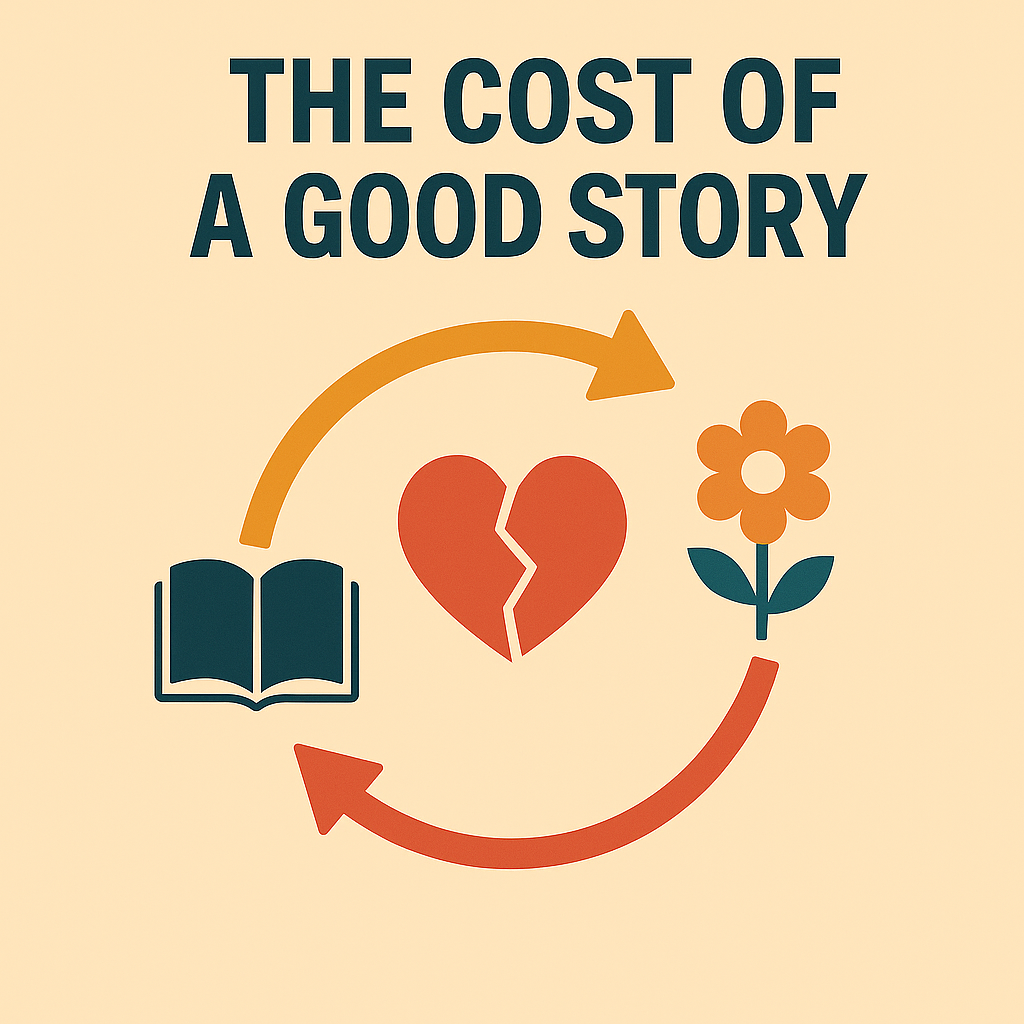The Cost of a Good Story
📺 Watch
🎧 Listen
The cost of a good story
Recently one of my clients brought up the concept of “toxic positivity” in a session. I had heard the term, but never looked into it. Here’s the introduction from Wikipedia:
Toxic positivity, also known as excessive positivity or positive toxicity, is dysfunctional emotional management without the full acknowledgment of negative emotions, particularly anger and sadness. Socially, it is the act of dismissing another person's negative emotions by suggesting a positive emotion instead.
Toxic positivity is a "pressure to stay upbeat no matter how dire one's circumstance is", which may prevent emotional coping by feeling otherwise natural emotions. Toxic positivity happens when people believe that negative thoughts about anything should be avoided. Even in response to events which normally would evoke sadness, such as loss or hardships, positivity is encouraged as a means to cope, but tends to overlook and dismiss true expression.
It is something I am constantly on guard against. I don’t trust environments or people who seem to lean in this direction. Life is beautiful, yes, but it’s also full of pain and misery. And, paradoxically, this is part of what makes it beautiful. This truth transcends words - I get lost in a sort of ecstatic, tearful Mӧbius strip of logic as I contemplate how beauty and suffering are bound up with one another… It’s so wonderful that pain is beautiful, but such agony that beauty often involves such pain. All you can do is cry tears of joy. And this is why I avoid toxic positivity like the plague - it simply doesn’t capture the true depth of what it means to be human.
This is one thing that the great religions get right for sure. All of them play masterfully, and with great inspiration and comfort, in this unspeakably paradoxical zone of psychology and emotion in which pain and beauty overlap. It is why these are the places to celebrate both births and deaths, and that it is so often the religious perspective that offers comfort in the midst of suffering and reconciliation in the midst of atrocity.
Life is too short for toxic positivity. We must celebrate the pain, keep its stories alive, despite their cost.
Because, the fact is, we can’t get enough stories. And stories come at a cost. If yesterday was a good day I likely don’t have much to say. But if it was a struggle you will lean in close and listen raptly.
Our human history is a tapestry of such stories, and the cost is their lesson. All stories come with a cost, and some stories exact a withering toll.
It is out of distaste for the impulse behind toxic positivity that I immerse myself in stories of suffering - it feels like important work. It is why I watch movies like The Killing Fields which, as of this writing, is on Netflix.
In 1975 the Khmer Rouge Regime seized power in Cambodia and held it for 4 years, one of many experiments in Communism that revealed how monstrous it was in execution. On the way to its envisioned agrarian utopia it murdered an astounding two million Cambodians, a full 25% of the country’s population.
The Killing Fields tells the story of Dith Pran, a Cambodian journalist, and his friend, the American Sydney Schanberg. Both stay in the capital city Phnom Penh to cover the rise of the Khmer Rouge, and it is implied that Sydney pressures Dith to stay even as his family is evacuated. Sydney is later evacuated himself while Dith is conscripted into forced labor, enduring 4 years of starvation before a harrowing escape that takes him through the ghastly Khmer Rouge killing fields.
At the conclusion of the film Sydney and Dith are reunited and reconciled. Dith forgives Sydney.
It is a beautifully told story which won mass critical acclaim and garnered 3 Academy Awards with 4 other nominations. A beautiful story. At what cost? 2 million lives, and the very soul of an entire nation. Is it worth the price? We have the story, and we must accept that.
It’s what I call the “paradox of the beauty of pain”, under the larger concept of “Narrative Trauma”.
A related, and central question: would it have been better to avoid the atrocity altogether? Without the atrocity and attendant adventure, there would be no forgiveness, no reconciliation. Is it more valuable to have a reality without struggle and sacrifice the healing it offers? Or is the healing and forgiveness worth the cost of the suffering that they require?
We all suffer and struggle. And we are always rewarded with a story. Sometimes, often, the story is far more meaningful than the good day, year, or lifetime we would have had instead.
Many of you reading this do, and have suffered. You have done so on the way to your goals. You have lost loved ones. Your ancestors have suffered through atrocities. And in exchange for that pain you have stories. And they are meaningful and beautiful. They inspire you to live life to the fullest, to make wonderful choices, build fabulous things, and share what you have been given with those you love. This is the nature of human life. We can only be grateful for the beauty, and befuddled by the trauma. And that’s the cost of a good story, because there’s always a cost.
By the way, you can read more about Narrative Trauma in a chapter of my first book, The Complete Science of Human Dynamics. People tell me it’s one of their favorite parts. Order it here.


